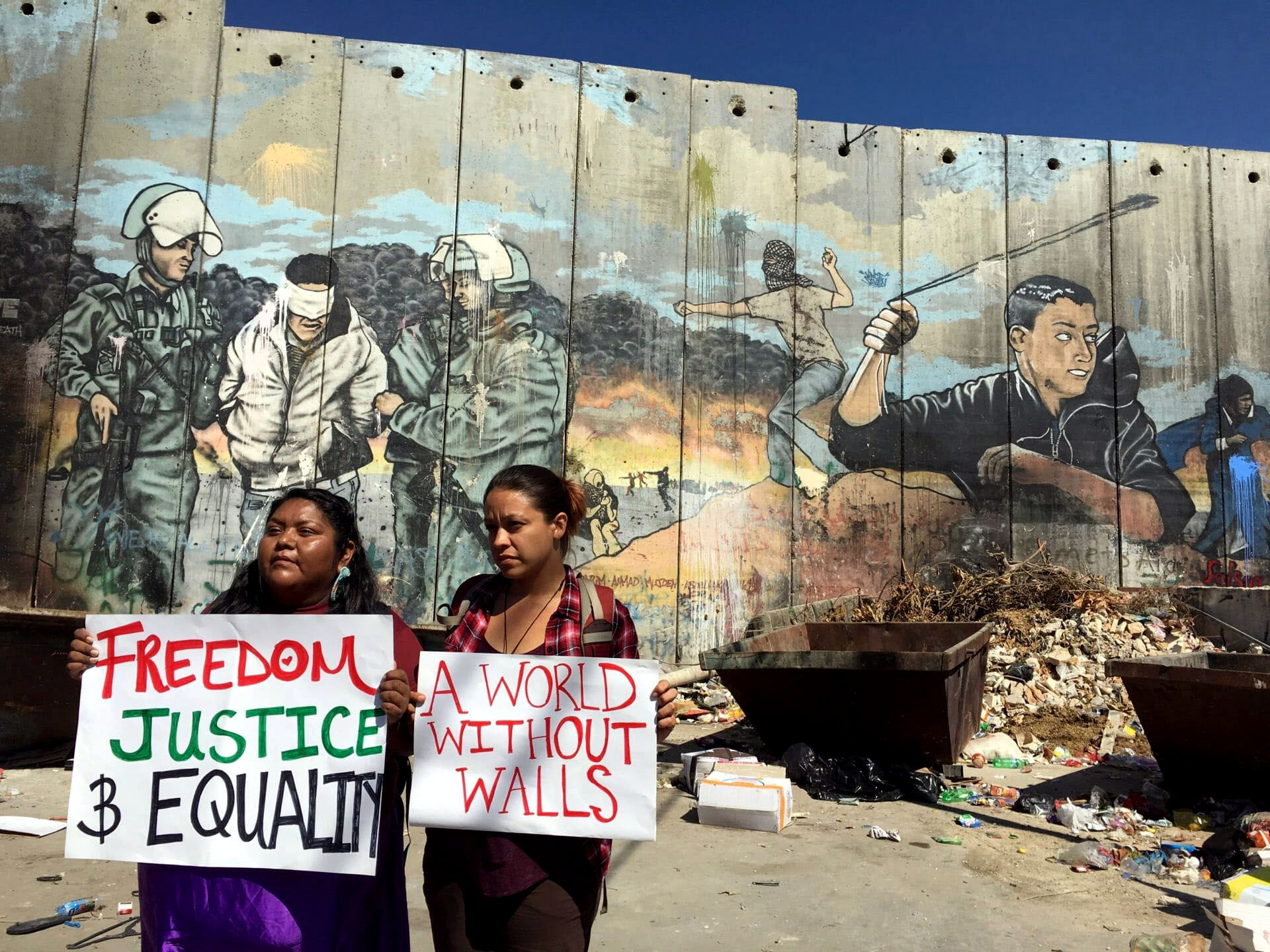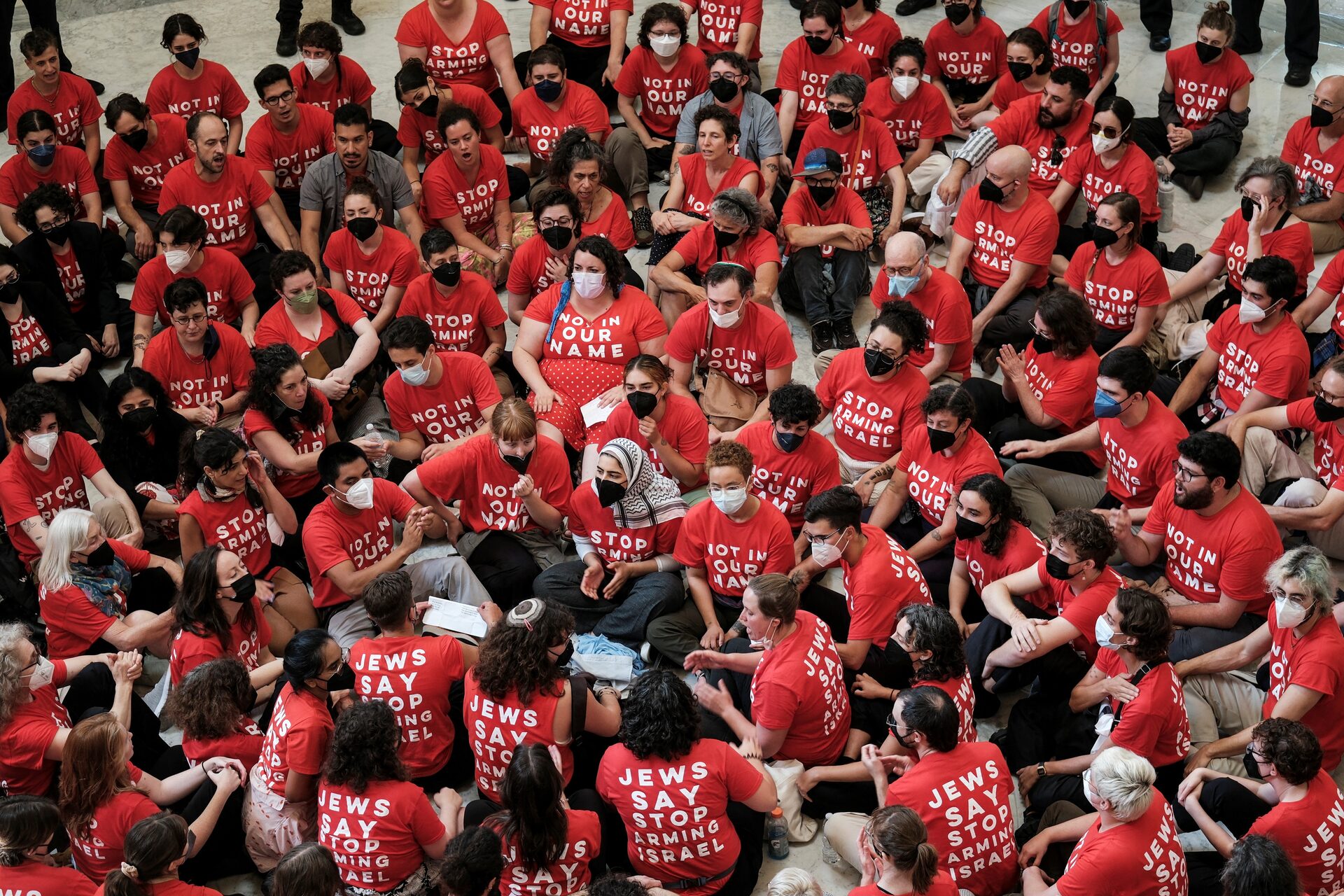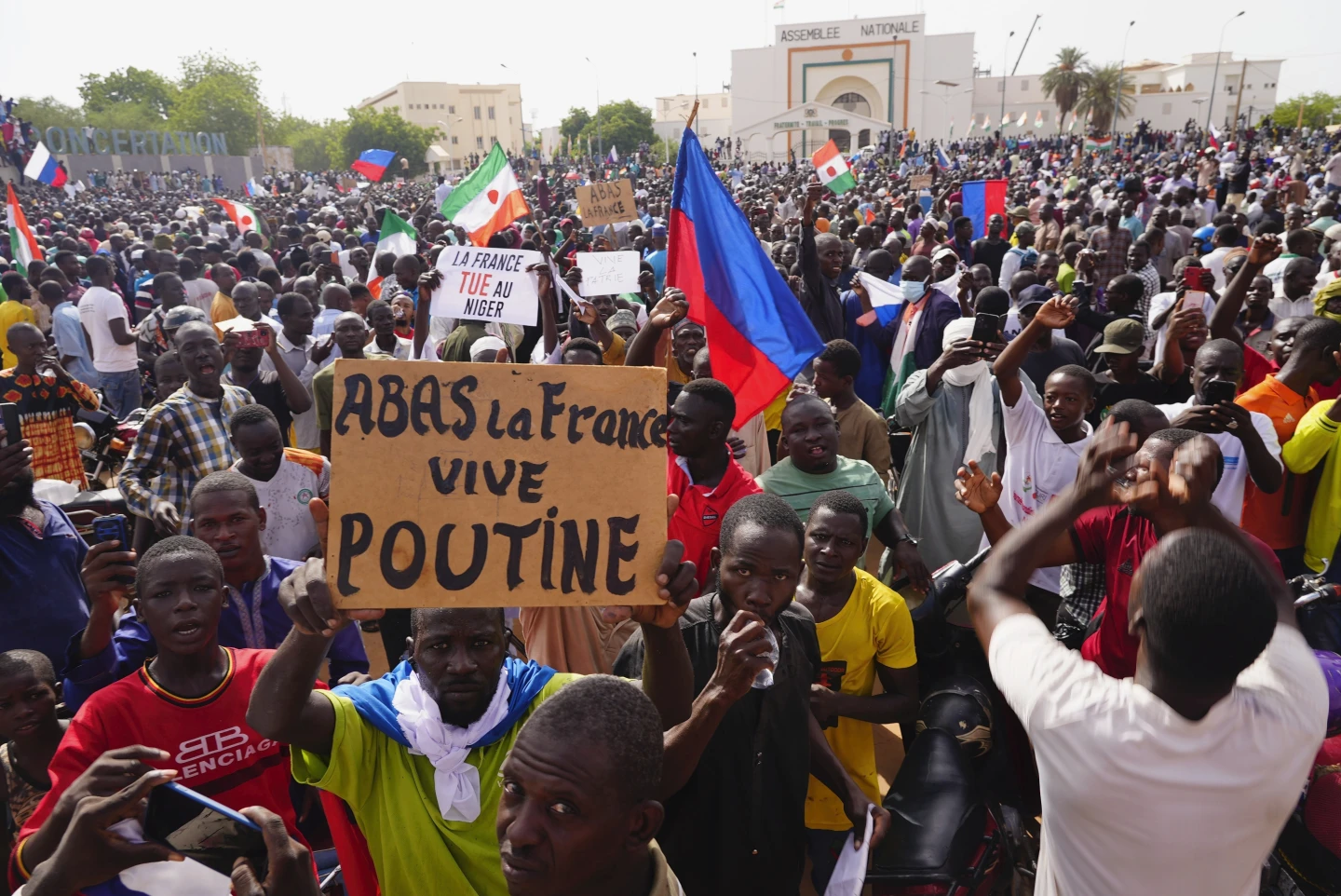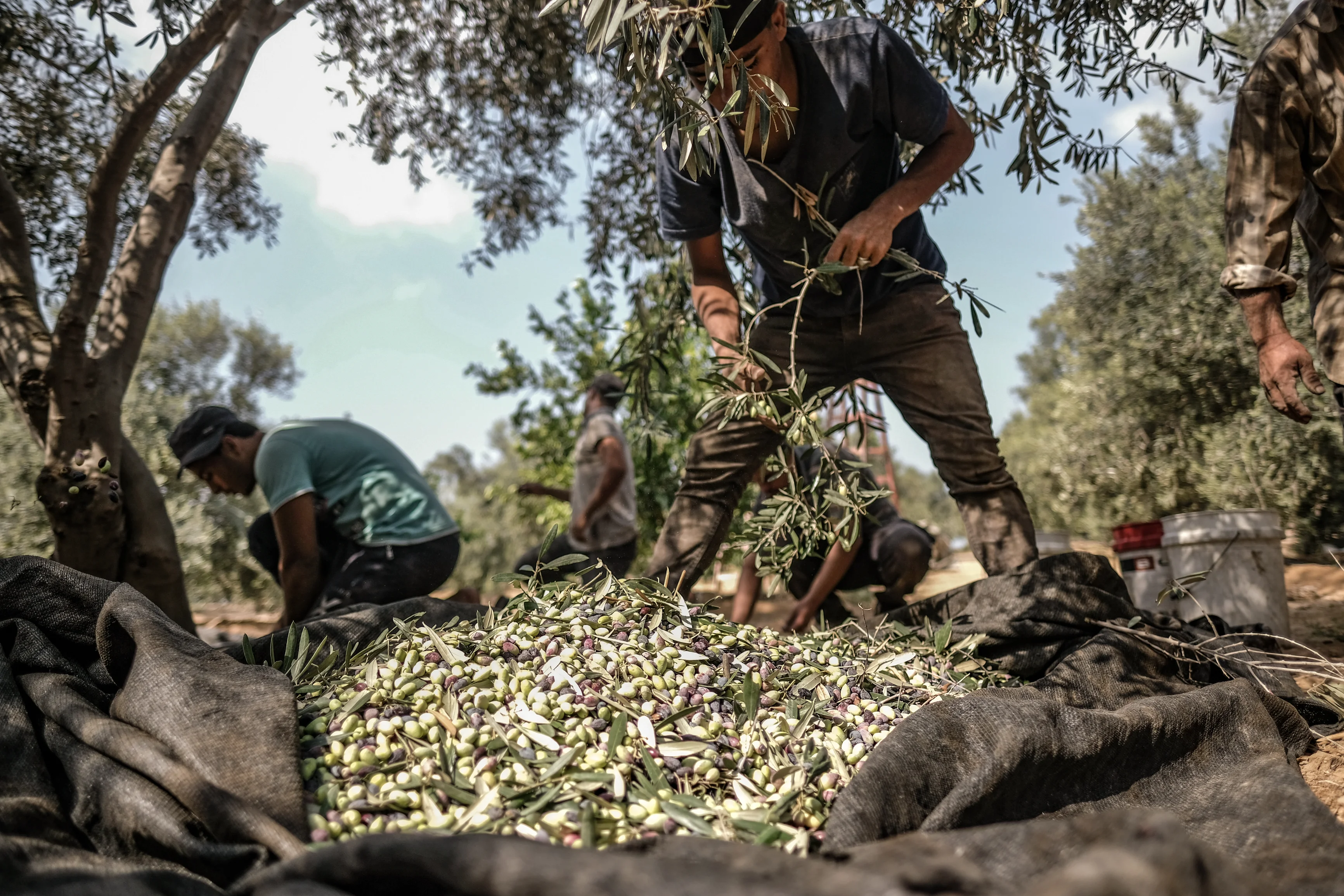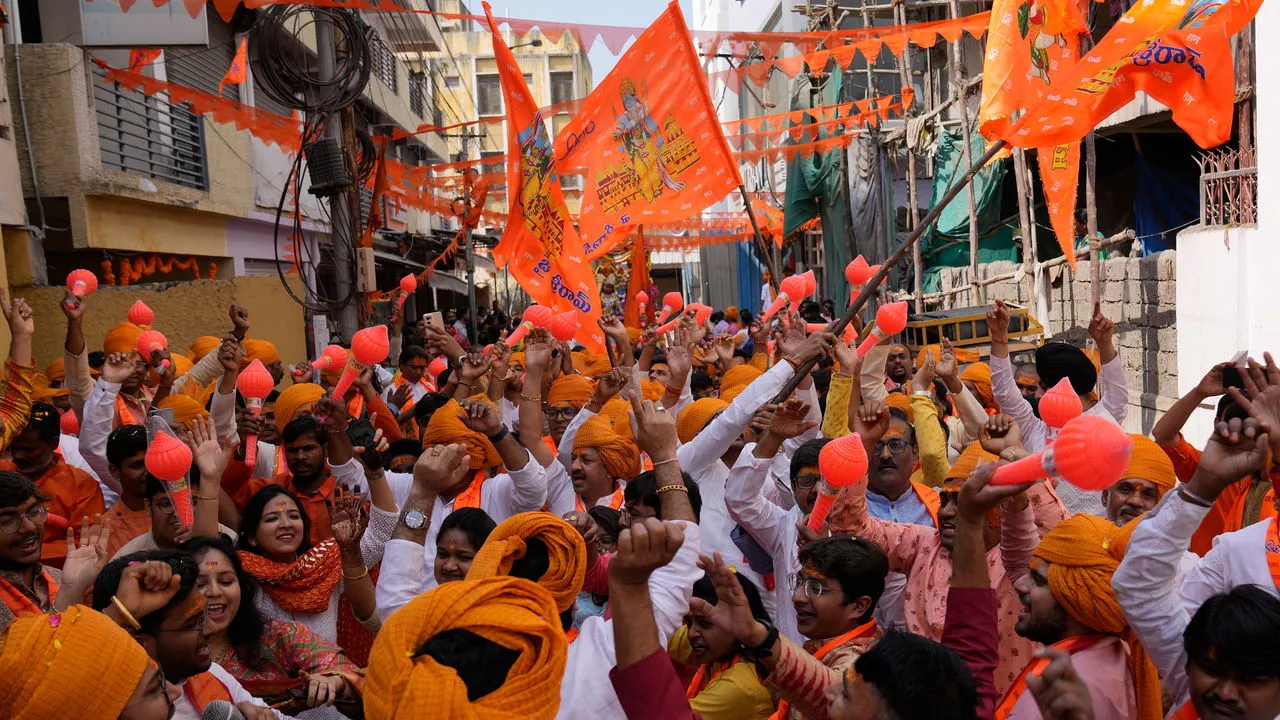Vertigo: To Be Palestinian at Harvard
Lea Kayali: Marhaba, good evening.
I have to admit I’m surprised to find myself here, addressing you all. In part because I am surprised they’re letting the three of us graduate, but also because for most of my time at Harvard, I didn’t feel like I had the sense of community that this gathering represents. Harvard was always a place where to me, up was down and down was up, especially this year. I was told my cries for ceasefire and divestment were violent — but those egging on a genocide were platformed and celebrated. The twisted logic of power can give you a sense of vertigo. As every university in Gaza was obliterated while this one stood, unbothered by Palestinian catastrophe, I often felt nauseous walking these halls.
Israa Alzamli: We have seen some of the most violent iterations of the Nakba unfold in Palestine over the last seven months. We watched as neighborhoods were reduced to rubble. As spaces of life became sites of mass death.
I watched as my own family was annihilated. The scenes they described are burned into my memory forever: a home toppled on my uncle and his family. Only three young children survived. Another house completely flattened. Seventeen were killed — one a pregnant mother. The photos of their body bags made the rounds on Twitter. Images of my last name inked on white plastic bags haunt me.
I think of my 15-year-old cousin who was shot while he was looking for food. I think of my aunt who went blind without her blood pressure medication. I think of the 120 people who began sheltering in Rafah with my family back in October. I think about how the house they sheltered in is now empty — those who were inside it are either displaced or dead.
As we watched the horrific destruction in Gaza on our phone screens, we looked up and saw the cold cruel complacency of those in our University.
Tala Alfoqaha: To be Palestinian is to understand betrayal: to have it inscribed into our land and onto our backs, to watch how those holding the knives have been both foreigners and people borne from our own soil. No reflection on the pain of this year is complete without a reflection on the pain inflicted by our own community — from the ongoing normalization of Zionism by Arab states to the deafening silence in the face of it here in Cambridge. In the earliest days of genocide, as buses bearing my name and face roamed the campus, as I lost my job, as Harvard administrators and U.S. politicians drummed up the hysteria that legitimized the mass elimination campaign we see today, I felt most abandoned by some of my Arab siblings — Arab siblings who conformed to the racism of the political moment, who tripped over themselves to distance their politic from that of those radical Palestinians, and who cozied up to Western liberalism at the expense of the people back home suffering under its destructive logic.
Kayali: But there was a shift, an inflection point this semester. Just when it felt like our movement had petered out, when the public outrage had quieted, the roaring cry of the student intifada shook this University right-side-up. The Liberated Zone became all which was missing in my Harvard education. Here was a place where our heroes' stories could be told — not in classrooms but in teach-ins, sitting cross legged on the grass. We reclaimed this space and rewrote it in the names of our people. Harvard’s century-old buildings took on the names of Hind Rajab, Sidra Hassouna, and Shireen Abu Akleh. My vertigo subsided. For the first time here, I felt at home.
Students, most notably the 15 Harvard is refusing to let graduate alongside us, righted the disorientation of this place. These students, most of whom had not spoken a word of Arabic in their lives, never, for a moment, let Gaza leave their mouth. These students, the samidoun, are undoing 76 years of betrayal. By refusing complacency, by sacrificing their diplomas, by steadfastly insisting on building a better world, they have pledged their loyalty to Palestinian life. They have forged their place on the right side of history.
Alzamli: As the political tide has shifted, I believe that many people previously scared into silence have since found their voice. But solidarity is most needed when it is hardest.
When it was hardest, it was these students who showed up. It was these students who took care of each other. Every one of these 15 students — every suspended student — every disciplined student — has exhibited more clarity, more moral courage, more bravery than any Harvard administrator ever could.
Alfoqaha: In the long road to freedom — freedom from Western imperialism, freedom from authoritarianism — stop asking yourself what you may lose for speaking up. Ask yourself what we could gain.
We can all learn from these students. They know what we stand to gain — liberation, freedom, justice. And when we gain it, we will have the brave, the courageous, the unflinching, the morally clear, the people who resisted — at personal cost, against the odds — to thank.
To the 15 students, us Palestinians bestow upon you the highest honor — that of giving us hope.
